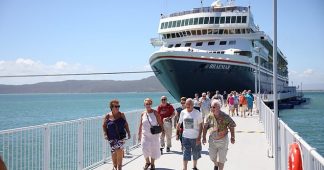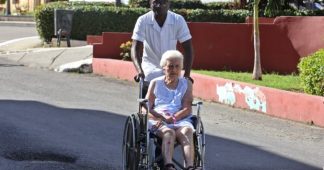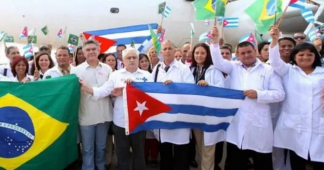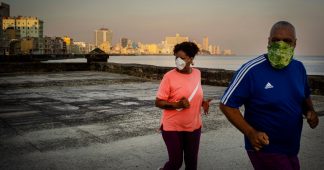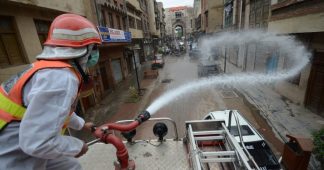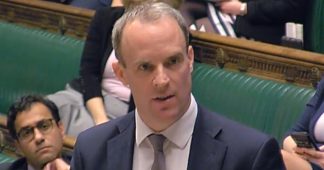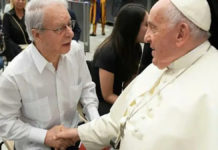Ottawa Drags Feet on Letting Cuban Doctors Help First Nations ‘Get Ahead of’ Health Crisis
8.04.2020
Jerry Daniels, grand chief of the Southern Chiefs’ Organization (SCO), which represents 34 First Nations communities in Southern Manitoba, joined Radio Sputnik’s Political Misfits Tuesday to discuss the Canadian government’s reluctance to allow Cuban doctors to aid indigenous communities in Canada.
The First Nations in Canada are the predominant indigenous peoples south of the Arctic Circle. A report by Al Jazeera in March revealed a lack of safe drinking water and sewage systems, as well as overcrowded housing conditions and poor health infrastructure, that placed the health of such communities at risk, especially during a global pandemic.
“We have a history of colonization, and [it] goes right back to residential schools, exclusion from the economy, all those underlying factors that go into the socioeconomic status of First Nations,” Daniels told hosts Jamarl Thomas and Bob Schlehuber.“So it’s very important that we start to take control of the health strategy, so that on the ground, we’re starting to see the kind of results that we want to see, which is an improved quality of life. Health outcomes are essential to any demographic, any people … and it’s no different for indigenous people,” he said.
According to Daniels, a delegation of Manitoba First Nations leaders was recently sent to Cuba to learn more about the country’s health care system amid the COVID-19 outbreak.
“What we found is that there has been a great deal of focus on the determinants of health [in Cuba], which I think is very important … the doctor-patient relationship is very important. That education side really factors in on the determinants of health,” he said.
“On the work with Cuba just specifically, we were looking at a model that could perhaps [result in a] better return on our investment, because we only have so many dollars we can allocate for the different files. But even the COVID-19 crisis we are facing now … we wanted to kind of move quicker on this file to have doctors … prepared on the ground in our communities and also preparing our communities in advance of any potential health crisis that might reach our communities. We were seeing health services around the world, especially in Italy and other places, where the health systems were being overwhelmed. We didn’t want to see that same situation here, given that we’ve had a history of colonization and a lot of systemic barriers when it came to health. So, we are trying to get ahead of that, looking for alternatives, looking for partners around the world,” Daniels explained.“Our delegation that went there [to Cuba] was focused primarily on: Can we perhaps have training in that region? Can we send people there for medical school? Can we have doctors in our communities, because we really don’t have that level of expertise in our communities?” Daniels added.
However, even though the First Nations formally requested the help of Cuba in responding to a potential outbreak in their communities, the Canadian government “wasn’t into the idea,” Schlehuber pointed out.
“There’s also provincial barriers there. If you look at Ontario, they have an international door open where they can have doctors come in through an international license that’s granted up to 30 days,” Daniels noted. “So that’s one example. We were hoping that the federal government could have done the same thing for on-reserve First Nations. That conversation is still ongoing, so they haven’t closed it, but they haven’t seen a lot of movement in trying to get this thing happening to create the conditions for Cuban doctors to come here.”Daniels also noted they were looking “to negotiate the timelines and all those kinds of things, all the logistical factors that would go into having doctors from Cuba come here and help the First Nations.”
As of last month, Cuba has been sending doctors to countries struggling to contain the coronavirus, including Italy, Venezuela, Nicaragua, Suriname, Jamaica and Grenada. Meanwhile in the US, the Trump administration has continued to discourage countries from accepting help from Cuban medical workers, claiming that doctors and nurses are “exposed to egregious labor conditions” in Cuba and that “host countries seeking Cuba’s help for COVID-19 should scrutinize agreements and end labor abuses.”
